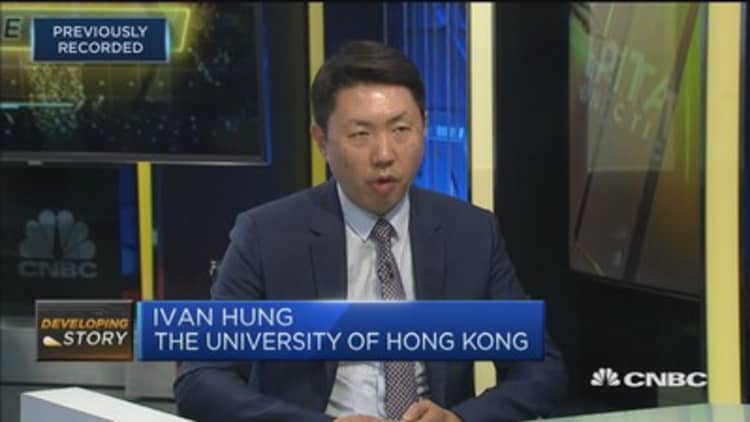A decision by the Hong Kong government to scrap major Lunar New Year celebrations due to the coronavirus outbreak is intended to ensure citizens are prepared for the "crisis to come," according to Jacob Kam, CEO of majority state-owned rail operator MTR Corporation.
The virus, which originated in the Wuhan region of mainland China, has now killed 26 people and infected over 800 more. The World Health Organization on Thursday refrained from declaring a global health emergency, suggesting the outbreak was largely confined to China.
Hong Kong has canceled the Cathay Pacific International Chinese New Year Carnival and the Lunar New Year Cup football tournament, along with tightening its health declaration requirements for high-speed rail passengers. Speaking to CNBC at the World Economic Forum in Davos on Friday, Kam said the decisions taken by the Hong Kong government to curb Lunar New Year celebrations were intended to "ensure our citizens prepare for the crisis that is to come."
"There has been a lot of promotion about getting prepared and so on, but nevertheless these celebrations will bring a lot of people together," Kam told CNBC's Karen Tso.
"We are encouraging people to make less unnecessary trips, so unless we believe it is necessary, we probably don't want to hold too many big crowd-gathering events."

Kam explained that MTR had implemented a contingency plan correlated to the "serious" alarm level issued by the Hong Kong government.
"We have built our plans based on the experience from the SARS epidemic so we believe that we are reasonably prepared for what is coming," he said.
"Among all these different measures, of course we have the enhanced cleaning of our premises, trains, all the public areas as well as our staff areas. In addition, we have our body temperature measurement for our ports. The government has put in place body temperature screening and symptoms screening arrangements."
Asked whether he was concerned about the impact on his business of falling demand, Kam suggested that the long-term nature of investment in the railway industry kept MTR insulated from short term fluctuations.
Hospital Authority Director Dr Chung Kin-lai said during a media briefing Friday that Hong Kong's medical bed occupancy rate was at 97% and 5,000 people had attended A&E in relation to the virus.





